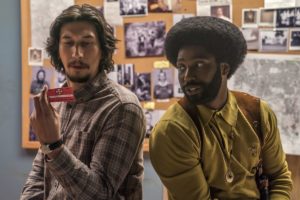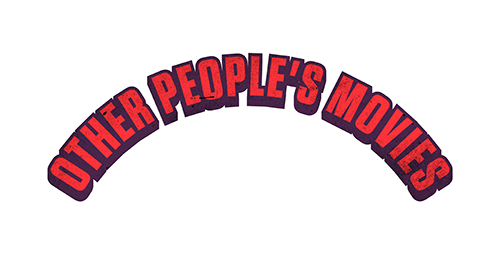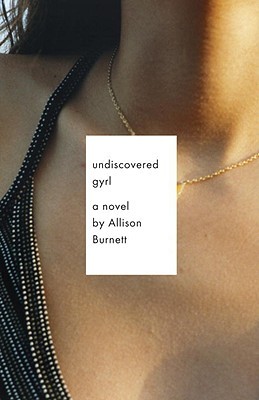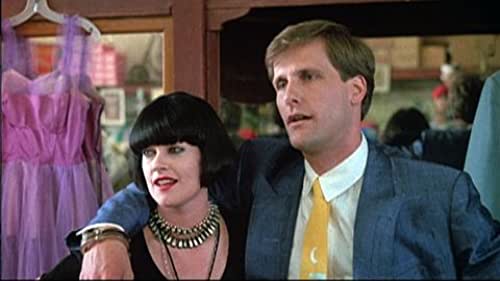
Spike Lee had one of the most impressive filmmaking runs in history from 1989 to 1995 with Do the Right Thing, Jungle Fever, Mo’ Better Blues, Malcolm X, Crooklyn, and Clockers.
All six of those films contained a voice that was singular, one that represented an under-represented minority during a time that needed it- even more than today. They were fast, funny, in your face, dramatically robust, experimental, cutting-edge, and bluntly critical of predominant white culture. There had been nothing like Spike Lee’s films before, and nothing has quite matched them at their best since.
While he’s had some sporadic bouts of greatness in the last two decades, it’s been increasingly difficult not to question if Spike Lee has officially lost his mojo. Girl 6, Get On the Bus, She Hate Me, Red Hook Summer, Oldboy, and Da Sweet Blood of Jesus are all films that suffered from forced over-direction, a misguided (sometimes even sloppy) lack of discipline, and a dispassionate tepidness that suggested the fire was leaving his once-burning belly.
Lee’s newest effort, BlacKkKlansman, is based the 2014 memoir by former detective Ron Stalworth, who went undercover in the 1970’s to infiltrate the Ku Klux Klan. Stalworth, an African-American, was partnered with a white detective named Flip Zimmerman (an alias used for the book) to double for him at in-person meetings while he handled set-ups over the phone.
Simply put, this is material practically begging to be adapted by the Spike Lee who was batting .1000 back in 1995. It has room for humor, excitement, and dramatic relevance. Since the film won the Grand Prix at the 2018 Cannes film festival in May, word-of-mouth has suggested it could and should be Lee’s much needed and long-awaited return to form.
Now, the big question, does it meet expectations? Thankfully, for the most part, it does. BlacKkKlansman is involving, entertaining, funny, and its story pertains to modern times as much as the historical period it recreates. Lee’s mojo is unquestionably back. His aim, however, is still a tad off, as the film barely misses the bullseye of greatness it had the potential to hit.
The performances are all spot-on with numerous standouts. John David Washington (son of little-known character actor, Denzel) is nothing short of a natural born actor. With his portrayal of Stalworth, he effortlessly proves he has the chops for both comedy and drama that the material, not to mention a long-lasting career, demands. Topher Grace is at his despicably best in a “gee-golly gosh!” portrayal of ignorance and hatred as the Grand Wizard of the Ku Klux Klan, David Duke. Adam Driver, as Stalworth’s white counterpart, Flip, is at his scene-stealing best, both dryly cynical and passionately sincere in his efforts to change the seemingly unchangeable.
Both the film’s peaks and its valleys start and end with Spike Lee. The heart, anger, creativity, and thunder that make the greatest Spike Lee films great are all present in BlacKkKlansman. That greatness, however, does come at a price, as Lee, like many of our most talented filmmakers, has a tendency to get in his own way. The clumsiness and on-the-nose nature that has overwhelmed his weakest and most recent works is also (thankfully only mildly) present in BlacKkKlansman.
Those faults can be found in two particular aspects of the film. The first is in an unnecessary subplot involving Stalworth’s love interest, Patrice. She is the head of her school’s Black Student Union, and the two meet and connect during a Black Panther meeting that is also Stalworth’s first undercover assignment.
While Laura Harrier has a fiery charm that suggests we’ll be seeing more of her in the future, the Patrice character is never fully realized beyond serving as a plot device for the film’s climax and as a delivery mechanism for tangential messages (albeit important ones) Lee wants driven home.
Secondly, Lee doesn’t let the film end until he’s made every single correlation he can as to how the 70’s-set story relates to today. Its final moments are particularly (and frustratingly) condescending. The film overstays its welcome by drilling conclusions home that Lee’s audience, he should know by now, is intelligent enough to come to on its own.
The story, the relationships between its characters, the bravado filmmaking, and the wonderful performances by his actors should have been enough for Lee to trust in. The film didn’t need, and mildly suffers from, his stamps of meta-authenticity- as earnest as the intentions behind them may be. They ultimately do nothing to highlight the story the film tells, they only distract from and soften its full potential impact.
That being said, what’s great and what’s overbearing in BlacKkKlansman wouldn’t exist without the other, as they both come from the same, provocative source that has been in hibernation for far too long. Whatever faults it has, BlacKkKlansman is a must-see effort and a welcome return to form for one of the greatest- though often most overstated- filmmakers of our time.
GRADE: B+



